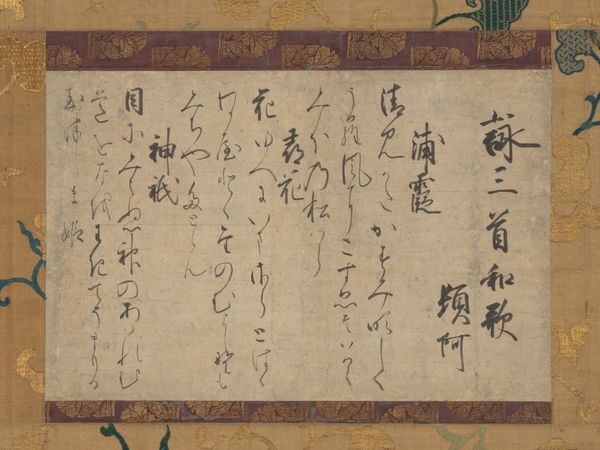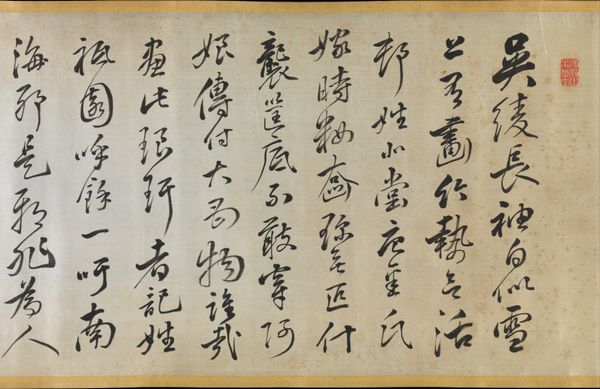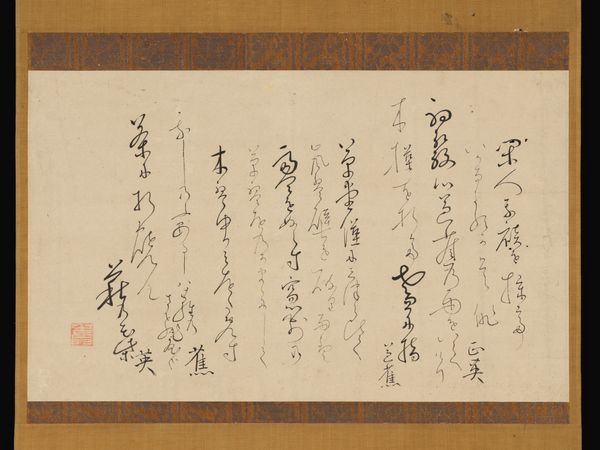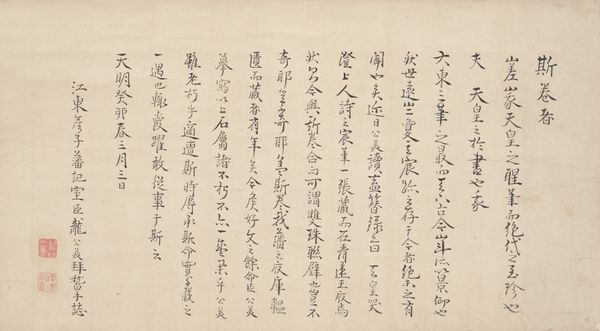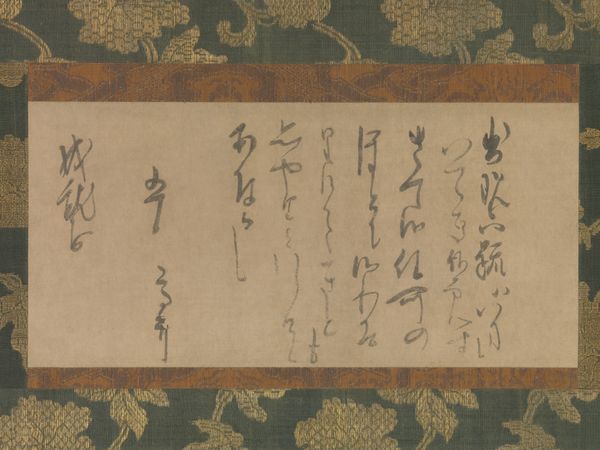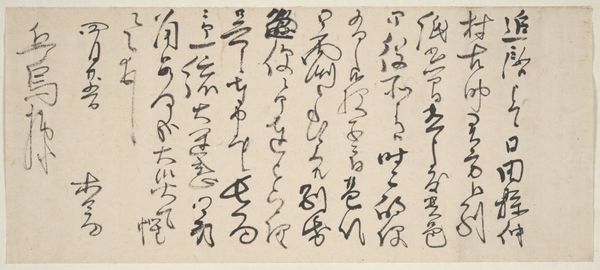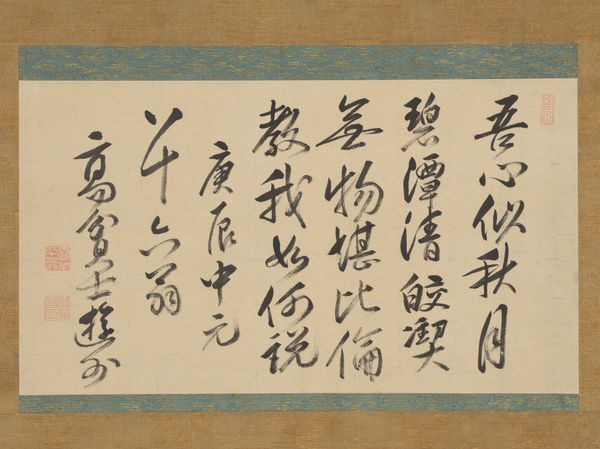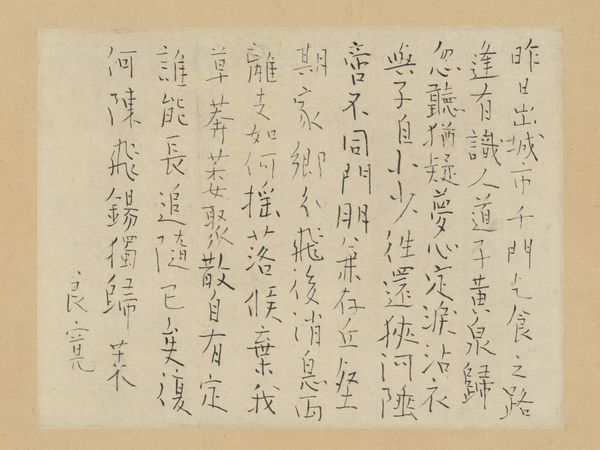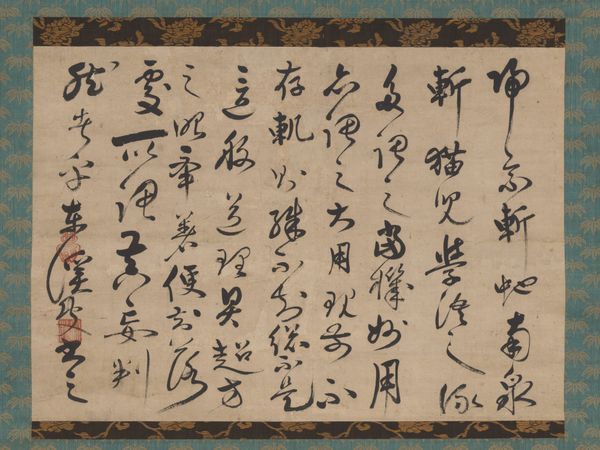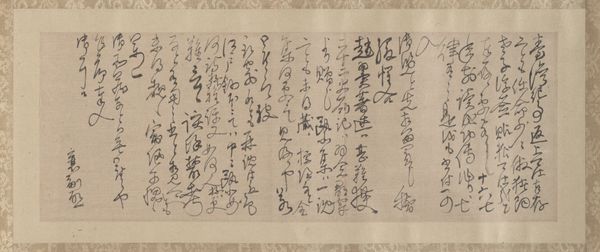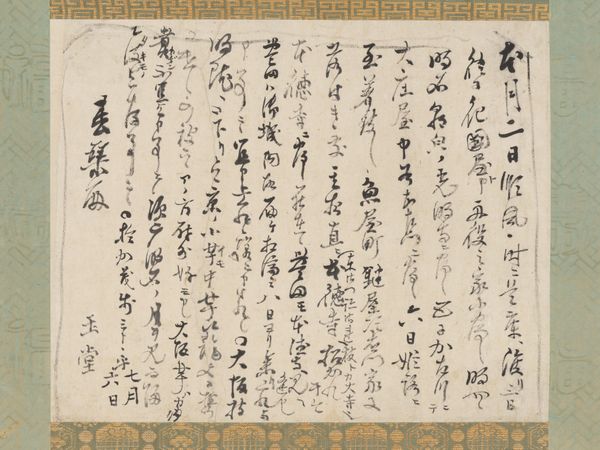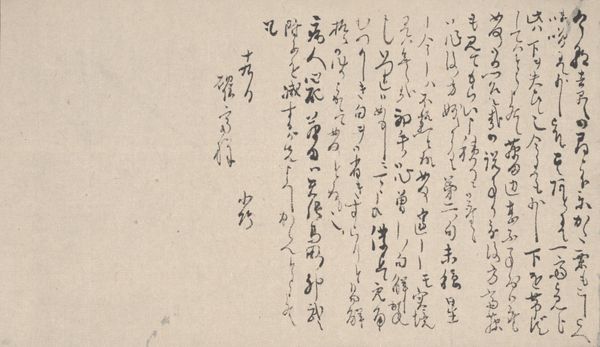
Two Waka Poems Composed at Zenrinji Temple 1803 - 1804
0:00
0:00
drawing, textile, ink
#
drawing
#
asian-art
#
textile
#
ink
#
abstraction
#
calligraphy
Dimensions: Image: 11 3/8 × 15 7/8 in. (28.9 × 40.3 cm) Overall with mounting: 45 1/2 × 16 5/8 in. (115.5 × 42.2 cm) Overall with knobs: 45 1/2 × 18 1/2 in. (115.6 × 47 cm)
Copyright: Public Domain
Here are two *waka* poems composed at Zenrinji Temple by Ueda Akinari, an eighteenth-century Japanese scholar, writer, and poet. Akinari lived during the Edo period, a time marked by relative peace and isolation, which fostered a unique cultural landscape in Japan. Akinari, born into humble beginnings, later discovered he was the illegitimate son of a well-to-do man. He wrote extensively in a period of social and political change; his work often reflects a deep engagement with the past and a critical perspective on contemporary society. These poems, likely written with ink on paper, capture a moment of reflection at Zenrinji Temple. The *waka* form, with its concise structure, serves as a vessel for expressing nuanced emotions and observations about the natural world. We feel Akinari's gaze as he looks at flowers of different colours, and contemplates the sky. Akinari's blend of classical learning with his own experiences offers us a window into the complex interplay between personal identity and cultural heritage.
Comments
No comments
Be the first to comment and join the conversation on the ultimate creative platform.
